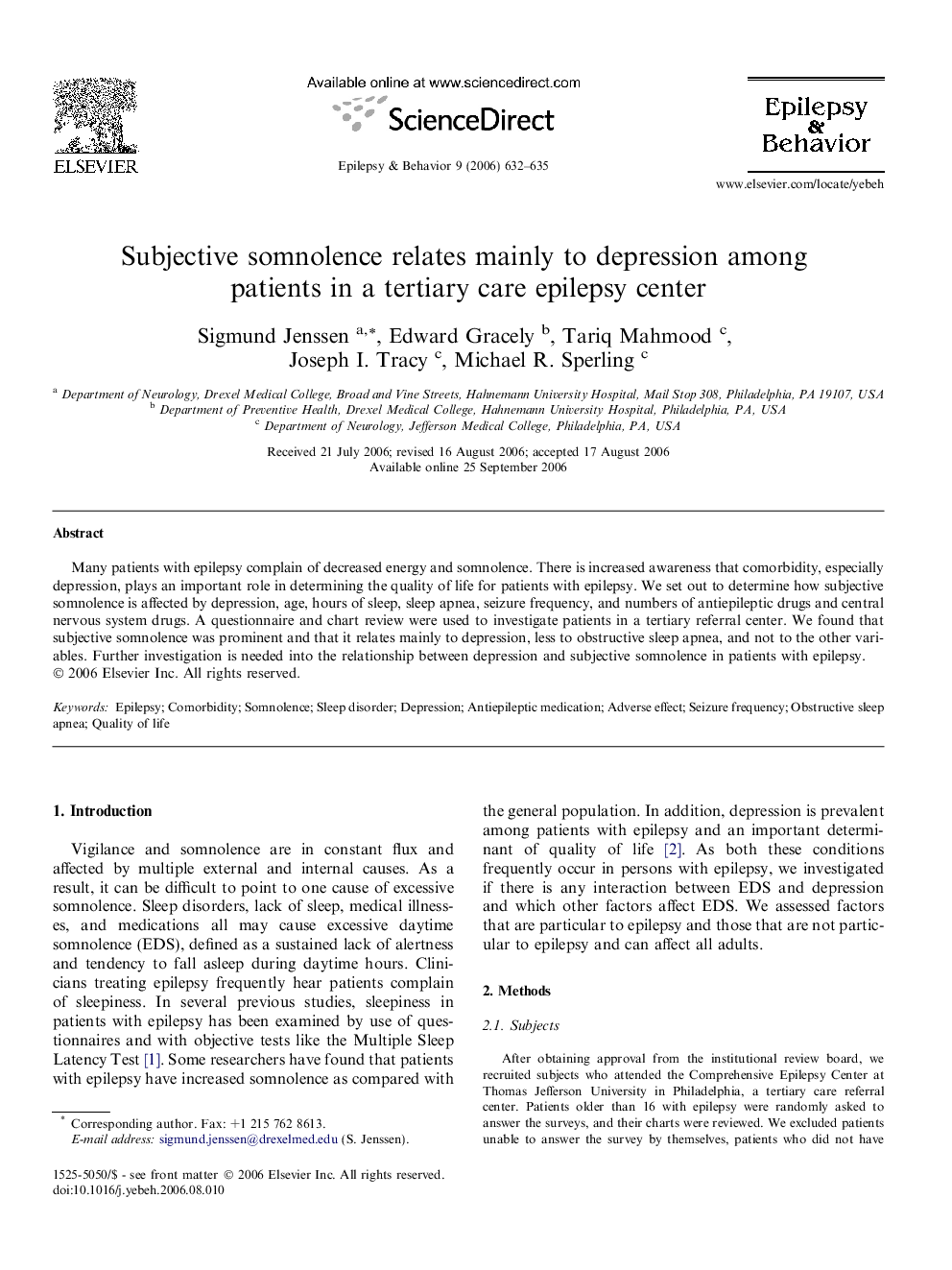| Article ID | Journal | Published Year | Pages | File Type |
|---|---|---|---|---|
| 3051555 | Epilepsy & Behavior | 2006 | 4 Pages |
Abstract
Many patients with epilepsy complain of decreased energy and somnolence. There is increased awareness that comorbidity, especially depression, plays an important role in determining the quality of life for patients with epilepsy. We set out to determine how subjective somnolence is affected by depression, age, hours of sleep, sleep apnea, seizure frequency, and numbers of antiepileptic drugs and central nervous system drugs. A questionnaire and chart review were used to investigate patients in a tertiary referral center. We found that subjective somnolence was prominent and that it relates mainly to depression, less to obstructive sleep apnea, and not to the other variables. Further investigation is needed into the relationship between depression and subjective somnolence in patients with epilepsy.
Keywords
Related Topics
Life Sciences
Neuroscience
Behavioral Neuroscience
Authors
Sigmund Jenssen, Edward Gracely, Tariq Mahmood, Joseph I. Tracy, Michael R. Sperling,
